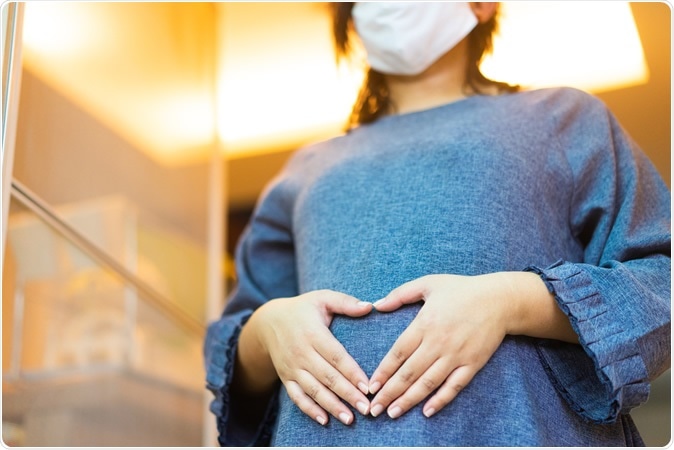Pregnant women should take extra precautions amid the coronavirus pandemic. A new study shows that severe acute respiratory syndrome coronavirus 2 (SARS-CoV-2), attacks the placenta.
The researchers from Northwestern University in Chicago aimed to identify the histopathologic findings of women with COVID-19 during pregnancy. They found that the placentas of women infected with severe SARS-CoV-2 have higher rates of placental injury.

Placental injury
Published in the American Journal of Clinical Pathology, the study revealed that there is evidence of insufficient blood flow from the mother to the fetus and blood clot formation in the placenta.
The placenta is a flattened circular organ in the uterus of a pregnant woman that nourishes and maintains the fetus through the umbilical cord. The cord acts as the primary link from the fetus to the placenta. Through the umbilical cord, the placenta provides oxygen and nutrients. At the same time, it removes waste products from the baby's blood.
Implications on pregnancy
The study provides a glimpse into how the coronavirus might cause changes in the placenta. Further, it shows the potential implications of the pandemic on the health of both the mothers and their babies.
The study involved 16 pregnant women with COVID-19 delivering between March 18 and May 5. The placentas were examined and compared to historical controls. Of these women, one suffered from stillbirth or intrauterine fetal demise, wherein the baby died in the womb.
The researchers found that the third trimester placentas of women with COVID-19 were significantly more likely to show at least one feature of maternal vascular malperfusion (MVM). This condition has pathological features such as reduced placental size, retroplacental hemorrhage, abnormal placental villi, and multifocal infarction.
The placenta of COVID-19 pregnant women also showed injured maternal vessels and intervillous thrombi. The placenta from the patient with intrauterine fetal demise showed villous edema and a retroplacental hematoma.
Increased surveillance
Pregnant women should be included in patients who are at high risk for COVID-19. The findings of the study shed light on the effects of the viral infection on pregnant women. Since placental injury is a complication of COVID-19, it is essential to ramp up antenatal monitoring and surveillance among pregnant women.
The researchers urged that changes should be made on how pregnant women are monitored today.
Related Study
A related study published by the Public Health Agency of Sweden in its Brief Report showed that compared to non-pregnant women, pregnant and postpartum women with COVID-19 have a higher risk of requiring intensive care. The paper concluded, “Pregnant women should be cautious considering the potentially severe consequences of SARS-CoV-2 infection and those with additional risk factors such as overweight or obesity, hypertension, and gestational diabetes should take extra precautions.”
Global toll
The coronavirus disease has since spread to 188 countries and territories, infecting more than 5.49 million people across the globe. Since the advent of the pandemic, more than 346,000 people have died. The United States is the country with the highest infection toll, with more than 1.66 million people infected, and its death toll has topped more than 98,000.
Brazil has reported a steep increase in cases and has now placed second as the nation with the highest confirmed cases. The country has reported more than 374,000 cases and more than 23,000 deaths. Russia has more than 353,000 cases, but with a lower reported death toll of 3,633.








 User Center
User Center My Training Class
My Training Class Feedback
Feedback












Comments
Something to say?
Log in or Sign up for free